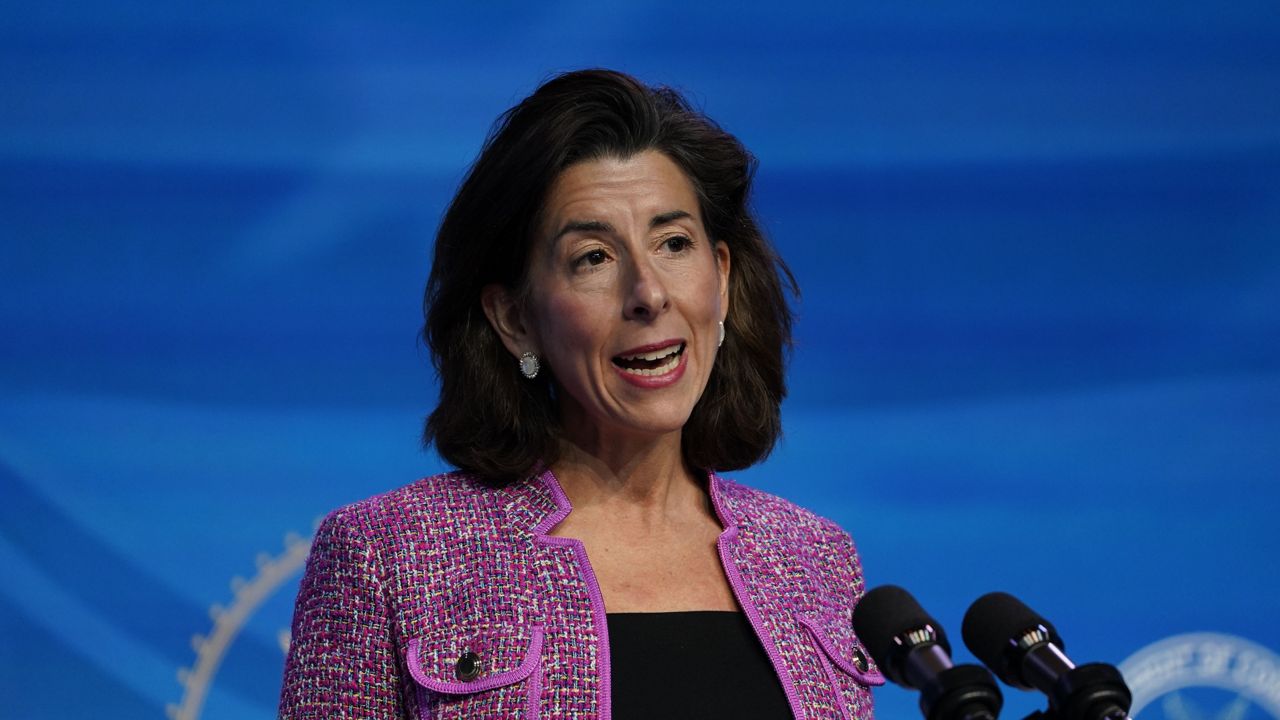Rhode Island Gov. Gina Raimondo was confirmed by the U.S. Senate in a 84-15 vote to serve as Commerce Secretary, where she will lead the department in helping set trade policy and promote U.S. opportunities for growth domestically and overseas.
Raimondo, who is currently serving as the governor of Rhode Island, gained wide bipartisan support from the Senate on Tuesday, clinching support from several top Republicans including Sen. Roger Wicker (MS), the head GOP senator on the Senate Commerce Committee, Sen. Lindsey Graham (SC), the ranking Republican on the Budget Committee, and Senate Minority Leader Sen. Mitch McConnell (KY).
Raimondo was the first woman to serve as governor of Rhode Island; she ran for the position in 2014 and won, and was re-elected in 2018.
She also co-founded the state's first venture capital firm before becoming the state's general treasurer in 2011, and also previously served as chair of the Democratic Governors Association.
Raimondo bid farewell to the governorship in her State of the State speech in early February in anticipation of the Senate’s favorable confirmation vote.
Much of Raimondo’s speech highlighted Raimondo’s successes since she first took over the reins to a state still reeling from the Great Recession. Her list included lower unemployment, a state record for total jobs, more than $1 billion in new investment; road construction and repairs; expanded early childhood education and workforce training; and free community college for high school graduates.
Each of those will help the state “build back better” following the pandemic, she said, even if she may be observing from Washington D.C.
While the precise timing of the state’s change in power remains unknown, Lt. Gov. Daniel McKee is set to serve out the remaining two years of Raimondo’s term once she steps down, a move expected to quickly follow Tuesday’s confirmation vote in the U.S. Senate.
Raimondo will now inherit a department that took actions during the Trump administration that heightened tensions with China, namely through tariffs and the blacklisting of companies by placing them on the U.S. government’s so-called Entity List. U.S. companies need to get a license to sell sophisticated technology to companies on the list.
During her confirmation hearing, Raimondo took a tough line on China, though she stopped short of singling out which Chinese companies should remain on a list that limits their access to advanced U.S. technology.
“China’s actions have been anti-competitive, hurtful to American workers and businesses, coercive, and, as you point out, they’re culpable for atrocious human rights abuses,” Raimondo said in response to a question from Sen. Ted Cruz, R-Texas. “So whether it’s the entities list, or tariffs, or countervailing duties, I intend to use all those tools to the fullest extent possible to level the playing field for the American worker.”
Much of her hearing was focused on regional issues, with lawmakers from coastal states focused on protecting valuable fishing industries and lawmakers for rural states calling for enhanced access to broadband. She confirmed her interest in working with them on those issues and emphasized the need to tackle climate change. She noted as governor that she oversaw construction of the nation’s first offshore wind farm.
“Like President Biden, I know the climate crisis poses an existential threat to our economic security, and we must meet this challenge by creating millions of good, union jobs that power a more sustainable economy,” Raimondo said.
The Commerce Department comprises a dozen bureaus and agencies, including the National Weather Service, the U.S. Census Bureau and the Minority Business Development Agency.
The Associated Press contributed to this report.



